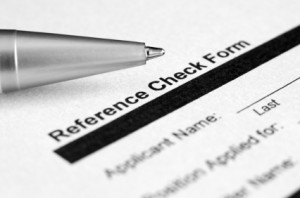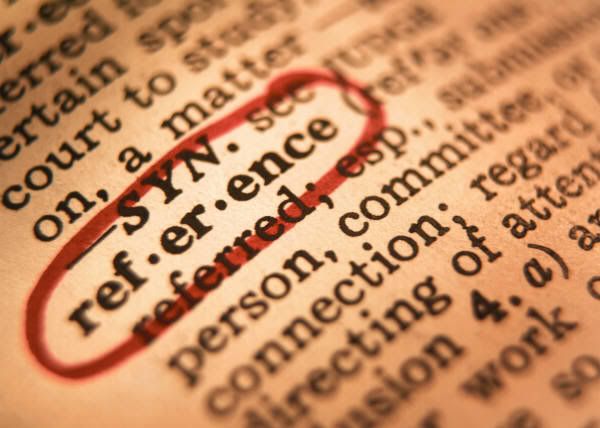Pharmacy Directors: A New Way to Interview
 Do you ever get tired of asking the same interview questions and wish they were more insightful? Often when interviewing a new candidate the same type of answers are given over and over again: “I’m a good team player,” “I work hard,” etc. Sound familiar? Do you often think to yourself, “I’ve heard all this before.” It can be difficult getting people to truthfully talk about their weaknesses. What if you could find out things that were more revealing about who you are considering?
Do you ever get tired of asking the same interview questions and wish they were more insightful? Often when interviewing a new candidate the same type of answers are given over and over again: “I’m a good team player,” “I work hard,” etc. Sound familiar? Do you often think to yourself, “I’ve heard all this before.” It can be difficult getting people to truthfully talk about their weaknesses. What if you could find out things that were more revealing about who you are considering?
 A friend of mine who runs a successful business kept telling me I need to check out the book, “Who.” At first I thought to myself, “I’ve heard lots of other interview questions before, so what could be so helpful about these?” After checking out the book I was pleasantly surprised and am now using some of these interview questions myself when interviewing people.
A friend of mine who runs a successful business kept telling me I need to check out the book, “Who.” At first I thought to myself, “I’ve heard lots of other interview questions before, so what could be so helpful about these?” After checking out the book I was pleasantly surprised and am now using some of these interview questions myself when interviewing people.
Here are a couple of the interview questions adapted from the book for you to get started with:
1. During the actual interview, ask this multi-part question, “What are the names of the last three people who supervised you?
When I call them, what are they going to say about your performance?
How would they rate it on a scale of 1-10 with 10 being the highest?
What would cause them to give you that rating?
What would they say about the areas you needed improvement in back then?”
These questions put them on the spot and get them answering from the perspective of honesty because it tells them that you are going to be contacting them and that their answers will be verified.
2.  Later, when you talk to the actual references, ask questions like, “What were the person’s biggest areas of improvement back then?” Framing the question that way takes the guard down and encourages the person to open up about things they probably would be more hesitant to answer.
Later, when you talk to the actual references, ask questions like, “What were the person’s biggest areas of improvement back then?” Framing the question that way takes the guard down and encourages the person to open up about things they probably would be more hesitant to answer.
Another question to ask would be, “XXXX mentioned they struggled with XXXX during their time there. What can you tell me about that?”
I encourage you to read the rest of this book. You’ll get other great tips and interview questions to ask for getting more honest answers from your candidates and their references.
Comment below on what you think about these interview/reference questions. Share the most effective interview question that you ask below.
3 Ways to Make a Pharmacy Director Yawn in an Interview
 Planning on interviewing this year? Even if you aren’t, if you ever interview again in your career, you can benefit from knowing this. Here are some surefire ways to make a potential pharmacy employer yawn in an interview:
Planning on interviewing this year? Even if you aren’t, if you ever interview again in your career, you can benefit from knowing this. Here are some surefire ways to make a potential pharmacy employer yawn in an interview:
1. Tell them what you’ve done and never talk about the reasons why it would benefit them. Many of us do this. We describe our job responsibilities….and don’t say much beyond that. It can sound very similar to what another pharmacist you’re competing with would say. If you want to stand out from your competition, go one step further. Describe what that would mean for the employer.
 For example, if you’re a clinical/staff pharmacist in the ambulatory care setting, instead of saying “I contribute to P&T committee meetings and help with med safety initiatives”, describe right away an example of a major accomplishment and the reasons why doing what you did would benefit them: “As part of my role of being a clinical/staff pharmacist, I worked on a project that helped reduce medication errors by X% over 12 months. This helped with medication safety and encouraged accuracy in the pharmacy.”
For example, if you’re a clinical/staff pharmacist in the ambulatory care setting, instead of saying “I contribute to P&T committee meetings and help with med safety initiatives”, describe right away an example of a major accomplishment and the reasons why doing what you did would benefit them: “As part of my role of being a clinical/staff pharmacist, I worked on a project that helped reduce medication errors by X% over 12 months. This helped with medication safety and encouraged accuracy in the pharmacy.”
Are you starting to see the power of sharing the benefit of what you did? Change this one thing about the way you interview, and you will impress the interviewer and increase your chances for getting a job you want, vs. someone else who didn’t know better.
 2. Say trite things that other pharmacist job applicants will most likely say. Tell them how you work well with others and that you are hard working. You can bet that your interviewer will tune out when you say trite things. Instead, try to describe yourself in a way that relates to the job you will be doing. Here’s the key: back it up with an example or a story. You can also bring up something positive a previous boss said about you. When a potential employer hears a story of you doing the great things you’ve done, they can relate to it. They can think about how that situation can apply to their needs.
2. Say trite things that other pharmacist job applicants will most likely say. Tell them how you work well with others and that you are hard working. You can bet that your interviewer will tune out when you say trite things. Instead, try to describe yourself in a way that relates to the job you will be doing. Here’s the key: back it up with an example or a story. You can also bring up something positive a previous boss said about you. When a potential employer hears a story of you doing the great things you’ve done, they can relate to it. They can think about how that situation can apply to their needs.
3. When asked by your interviewer, “Do you have any questions”, you either say “No, you went over everything” or you ask a few questions but don’t take things a step further to show further interest. Ask well thought out questions, listen, and ask more in depth questions about that topic.
 Have some sincere questions ready for when you are asked, such as:
Have some sincere questions ready for when you are asked, such as:
- “What are the qualities of the people who are your best pharmacists in your pharmacy?” (Use this to respond with the similar qualities you have)
- “What projects/initiatives are being implemented that I will have a part in if I am accepted for the job?”
The interviewer will be impressed by the questions you ask, and he or she can learn a lot about you by what you bring up during the interview.

BONUS Tip: One great question to ask is “What’s important in what you’re looking for?” Then answer with what you’ve done that’s relevant to what they’re looking for. Again, give examples and stories—they can help you stand out.
Use these valuable strategies to prepare for your next pharmacy interview–instead of boring your potential employer(s), keep their eyes open & increase your chances of getting the job! Now go and get the job you deserve, or share this with a pharmacist who is interviewing soon.
Comment below on what you learned from these strategies & what mistakes you’ve made in the past but now you’ve realized. If you have been an interviewer before, comment on how frequently you hear boring things from pharmacist applicants.
Weed Out the Wrong Fit – 7 Reference Questions You Never Thought to Ask (Updated July 2013)
 Pharmacy directors/hiring managers: do your reference questions help weed out the wrong fit, or do you not pay much attention to them especially if you like the candidate? References are a goldmine not only for determining fit, but also for how to bring out the best in a new hire once he/she starts.
Pharmacy directors/hiring managers: do your reference questions help weed out the wrong fit, or do you not pay much attention to them especially if you like the candidate? References are a goldmine not only for determining fit, but also for how to bring out the best in a new hire once he/she starts.
When my company asks reference questions to pharmacy directors about candidates who’ve worked under their supervision, we often get pharmacy directors making comments like “these are good questions—I’m writing some of your questions down to ask during reference checks!”
Since quite a few of you have asked me for this, I’ve decided to let you in on a few of my secrets about asking the right reference questions to weed out the wrong fit:
Bonus questions to ask:
Ask creative questions to gain valuable insight on how to work best with your new prospective hire:
- “What advice do you have for someone who would be managing him/her?”
- “What untapped talents do you think XXX has and is waiting to be expressed?”
*The 7th best reference check question will be selected from your submissions below & posted here. Post below and receive your gift of the top 20 Interview Questions to Ask.
Also, ask proficiency-related questions if it’s important. And don’t just stop at asking them to rate proficiency level. Go a step beyond to get clarification about their proficiency level. Ask them to describe what the pharmacist is capable of doing. For example, don’t just stop with asking your reference for whether someone is just proficient/good/average/poor using a computer system.
I made the mistake recently about this & it blew up in my face. What was answered by the reference was not representative of the person’s actual experience. Imagine how awful I felt misrepresenting a pharmacist’s experience to a hiring manager (especially when hiring managers usually love us for our honesty).
The key is learning from each mistake and always improving your process. It will make you eagle-eyed with assessing the wrong fit and prevent you from headaches down the road.
Now that you’ve learned a few of my favorite reference questions to ask, share 1-2 of the most useful reference check questions you have used in the past in the comments below. Post a comment below (when you type in your email, it will remain private and will not show up on the blog) and you will receive a gift of the “Top 20 Questions to Ask in an Interview, so you hire the best pharmacist.”
Hiring Pharmacists: Is Experienced or Inexperienced Better?
Should you hire an inexperienced or experienced pharmacist?
Sounds like an obvious question, doesn’t it?
The answer?
It’s simple but not always obvious.
Some pharmacy hiring managers love to hire inexperienced pharmacists with the right attitude and train them to their pharmacy/company’s ways of doing things & groom them. Others prefer more experienced pharmacists, so management can save time with training. *Note: in this job market, the definition of inexperienced that I’m referring to is a few years of experience or less.
Here are the 3 most common mistakes of hiring based on experience or inexperience. You may identify with one of them and gain a few insights, plus save yourself headaches when you hire:
Mistake #1: Hiring inexperienced people with the right attitude & fit, but not having the time/energy to set them up to meet or exceed your expectations. You tell yo urself you will create a comprehensive training program, but you really don’t have time for this kind of thing. It gets put on the backburner because of all the other things you HAVE to do.
urself you will create a comprehensive training program, but you really don’t have time for this kind of thing. It gets put on the backburner because of all the other things you HAVE to do.
Before you know it, your new hire is either frustrated and not performing to the way you’d like, or you talk yourself into not needing to create a comprehensive training program. You tell yourself that the first few week or two of training should’ve been enough.
Even more frustrating, your new hire decides to leave after a short period of time, even though the pharmacist seemed like he/she wanted to stay a long time with you.

Pharmacist Slacking Off
Mistake #2: Hiring primarily based on experience, and getting excited about someone’s achievements but not being careful with the rest of your screening process (including not following your intuition). You tell yourself that you don’t have to worry as much about assessing their fit, because this person has worked many years at another pharmacy successfully. Surely they’ll catch on even though they start out performing below your expectation. You let your guard down and skip over parts of your typical screening process.
Caution (Hiring Alert!): Working many years at another pharmacy and doing well there doesn’t automatically translate into doing well in your pharmacy’s culture and expectations. Your potential hire’s previous goals aligned with that employers’, but does his/her current goal align with your pharmacy’s?
Mistake #3: Hiring and allowing someone to continue at your organization when you realize they consume too much of your time (not in a beneficial way), or may be toxic to your staff. You think it will be too much trouble to go out there & look for a new hire again. You stay in this bad marriage because you committed, right?* Now, in most cases, I’m all about commitment in a marriage & staying until things get worked out, but having someone on your staff is not completely like a marriage (although there are similarities).
You can have patience & compassion to an extent about your new hire, but if it doesn’t work out, the decision to let him/her go will prevent that person’s ability to affect other staff members’ work. In fact, hanging on to someone who’s not right for your pharmacy can prevent others from performing their best.You can have a different relationship with your hire who didn’t work out, ie: an acquaintance, but you don’t need to have them consume your time & emotional energy as a staff member whom your pharmacy’s paying for.
What is the solution to these potential headaches?
If you hire someone inexperienced, take the time to assess how much time and energy it will take of yours and your staffs’ to get your new hire up to speed. Beyond that, how much time and resources will it take for them to excel? When you hire someone inexperienced, hiring someone with the right attitude and “fit” becomes even more important. If you end up finding out after they start & it doesn’t look like it’s going to work out, you’ve just spent a tremendous amount of your energy getting them on board. Take care in assessing the “fit” and attitude of your inexperienced hire.
If you hire someone experienced, make sure you have someone who has the attitude and “fit” of your pharmacy organization, not just on a short-term basis but a long-term basis.
These common hiring mistakes above can not only happen when hiring a pharmacist for a full-time position, but especially when hiring someone to fulfill a temporary need. Most of the time when you are pressed for a last-minute need, you really don’t have time to ie, train someone with little experience, or deal with headaches of someone who is not the right fit.
This is where having a relationship with a recruiting company that specializes in the area of pharmacists you’re looking for and who knows you well can really give you value that no one else can. There is nothing better to be said for fit, experience, & the right attitude. Sometimes not having the right fit nailed down can really cost you.
When you have a secret weapon who knows you, your pharmacy’s vision, and more about your team so they are sizing up candidates based on much more than experience, the result of finding the right “fit” can save you headaches, time, and beaucoup bucks.
Add that with getting access to the most experienced pharmacists in the area of specialty your pharmacy’s looking to hire, and you have an edge to save yourself a lot of hassle & long-term hiring costs that other pharmacy hiring managers don’t have.
7 Reference Questions You Wish You Asked Before Hiring a Pharmacist
Have you ever hired a pharmacist you got along with so well during the interview, only to wonder why you hadn’t seen it coming that your new hire would not work out as your employee?
Hindsight is always 20/20. But what if you could have as close to 20/20 before you hire someone? Take the emotional judgment out of your decision by using your intuition (NOTE: there is a distinction between intuition and emotion), assessing someone’s potential for future performance, and uncovering past behavior. This prevents you from just hiring someone you like, but who may not be a fit for the role. The decision factors mentioned above are the keys to a successful hire.
One method to uncover past behavior is asking the right reference questions. Not just generic standard reference questions, but insightful ones that help you make a sound decision. Don’t skip asking these insightful questions before you rush into hiring someone just because you’re short-handed.
Ask these 7 Reference Questions Before You Hire Your New Pharmacist:
- What did you find him/her to be naturally good at, or thrive on doing?
- Tell me about a time when a breakdown happened (ie, patient wasn’t getting served in the way you wanted; project wasn’t completed in a timely manner). What happened & what was the resolution?
- Under what kind of work environment do you think he/she would feel stifled in?
- Did he/she meet, exceed, or perform below your expectations?
- What advice do you have for managing him/her, and bringing out the best in him/her?
- What comes to mind first when you think of him/her–a starter, or a finisher?
- Would you have him/her work there again if the opportunity arose?
BONUS Reference Check Question:
If you were to hire XXX back and could create a position for XXX, what kind of a position would it be (ie, responsibilities)?
Comment below, or click the link to the right to share YOUR favorite reference questions. Contribute and you will receive a FREE Gift of” Top 20 Interview Questions to Ask“, so You Hire the Best Pharmacist NOT the Best Interviewer.